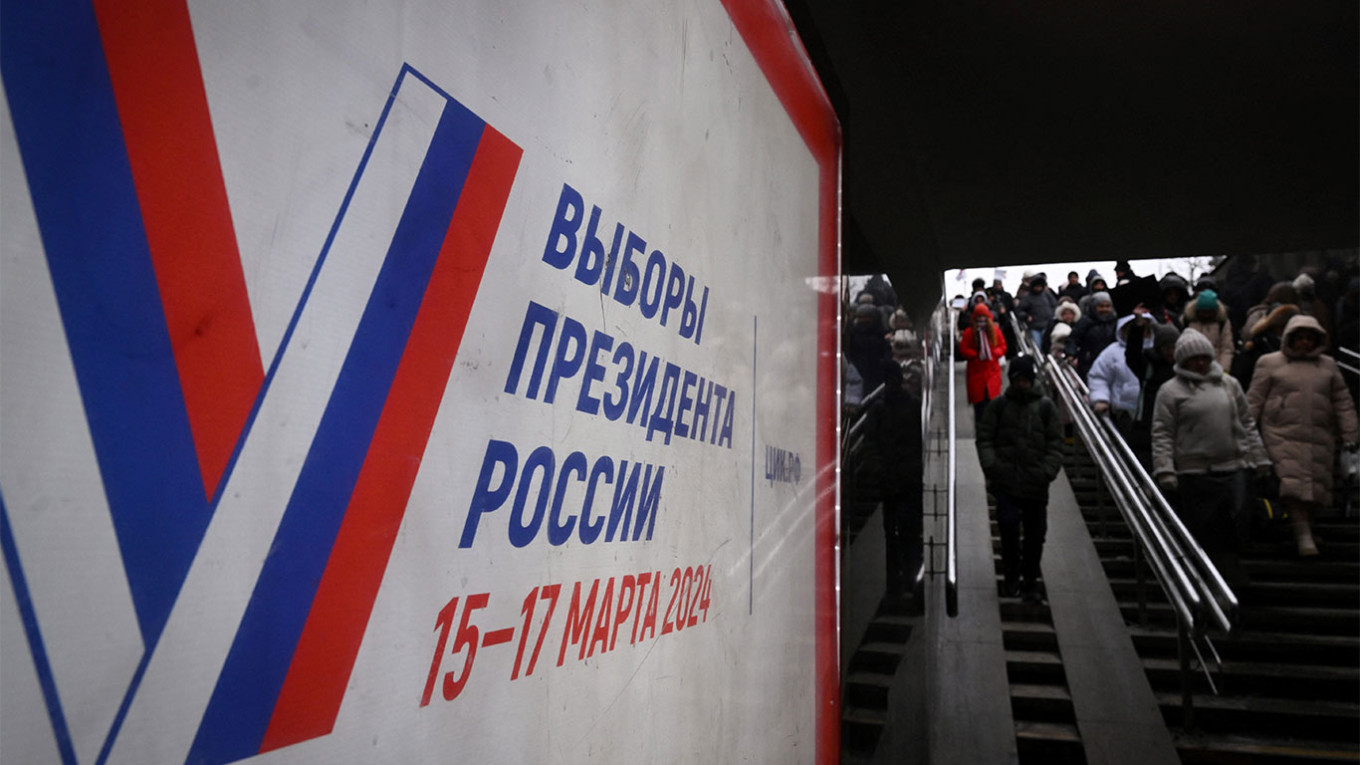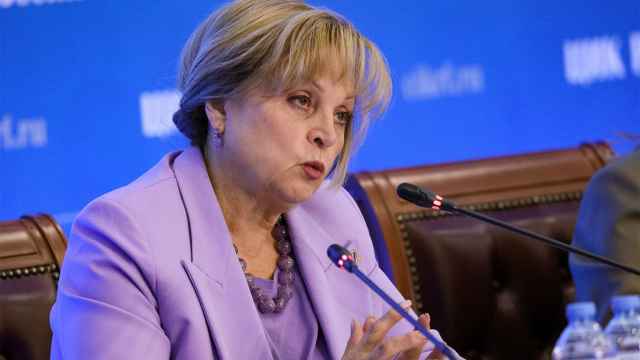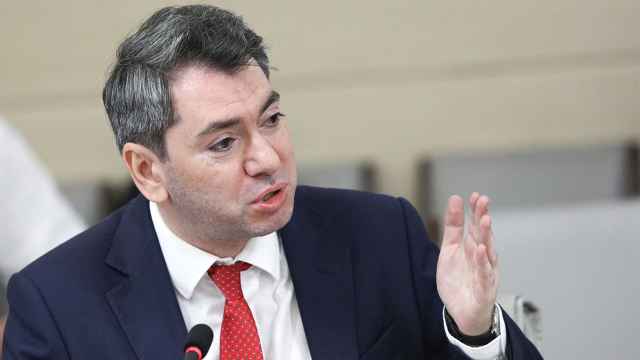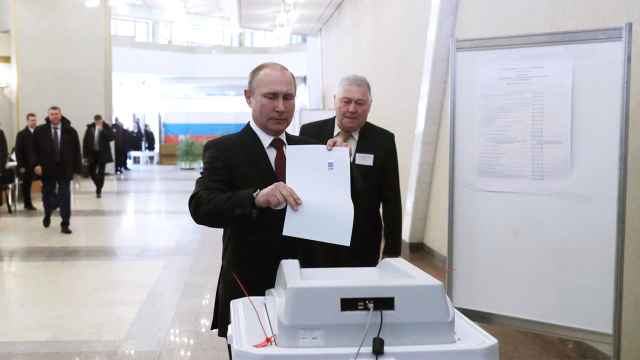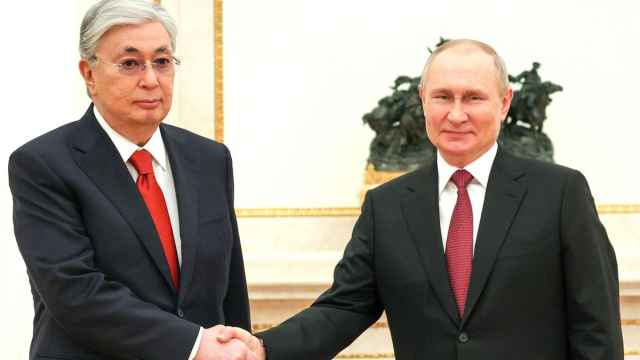The Kremlin’s political managers have long known what they want from the 2024 presidential election: a record turnout, and for President Vladimir Putin to get his largest ever share of the vote. Their plans had to be adjusted on the fly, however, when the leaders of two political parties said they would not run. Instead, Putin will run against stand-ins and spoiler candidates, undermining the Kremlin’s narrative about the election’s significance.
The extreme nationalist Liberal Democratic Party of Russia (LDPR) will be represented by its leader Leonid Slutsky, who is the president’s biggest rival in terms of formal status. The head of the Communist Party, Gennady Zyuganov, has declined to run, and will be replaced by Nikolai Kharitonov. Nor is the leader of the centrist New People, Alexei Nechaev, taking part: he will be represented by State Duma deputy speaker Vladislav Davankov.
It’s no secret that the Kremlin wanted Zyuganov and Nechaev on the ballot. Firstly, they are senior politicians known to the public. Secondly, their participation would have made it easier for the Kremlin’s political managers to deliver the big Putin win they were seeking. In the 2018 presidential elections, Putin got 76.7 percent with a 67.5 percent turnout. Both these records must now be beaten.
In other words, the Kremlin can allow Putin’s opponents up to 20 percent of the vote. If he were standing, Zyuganov would have been able to aspire to about 10 percent (approximately the current level of support for the Communist Party, which has recently alienated protest voters by supporting the Kremlin’s war against Ukraine). The LDPR candidate could expect a few percentage points less than their level of support nationally (around 8 percent). The candidate from New People could, therefore, hope for about 3 percent.
This sort of scenario would have been welcomed by Slutsky, who wants to be seen as a national politician and quieten his restive party (he took over in 2022 following the death of its prominent long-term leader Vladimir Zhirinovsky). Yet his run will only be deemed a success if he gets at least 5–6 percent of the vote like his predecessor usually did, and, ideally, comes in second after Putin. Slutsky clearly thinks this is possible.
Such a scenario was less acceptable to the other candidates. If he’d decided to run, Zyuganov would likely have gotten his worst ever result. There is little chance the veteran Communist will take part in the 2030 presidential elections (he’ll be 85 at that point), and he clearly didn’t want to end his political career on such a disappointing note. It’s likely that Zyuganov personally sought Putin’s approval not to run, since his decision went against the wishes of Kremlin managers.
Nechaev followed in Zyuganov’s footsteps. As a businessman, he could see that this election was a game he was doomed to lose.
Nechaev’s replacement, Davankov, is well known to Putin’s political managers and the Kremlin’s domestic political overseer, Sergei Kiriyenko. But he has one serious drawback from the Kremlin’s point of view: he’s just thirty-nine years old. Allowing such a young person on the ballot risks drawing attention to Putin’s advanced age (he turned seventy-one last year).
Vedomosti newspaper reported in December that Kremlin managers were trying to convince Nechaev to stand. Ultimately, however, they were unsuccessful. Thanks to his ties to the influential Rotenberg brothers, Nechaev was able to obtain permission for Davankov to run in his place.
The absence of Zyuganov and Nechaev complicates the electoral math for the Kremlin. Some Communist Party supporters will be unhappy with Kharitonov’s candidacy, and will not vote for him. That will make it harder to hit the turnout goal: Communist Party voters can usually be relied on to get themselves to the polling stations.
Davankov’s participation may also make it more difficult for Putin to get his record result. The issue is not Davankov’s rhetoric, but the fact that he’s a newbie—and relatively young. It’s worth recalling businessman Pavel Grudinin, the Communist Party’s candidate in 2018, who saw his ratings surge purely because voters saw him as a fresh face. The authorities had to resort to mudslinging to damage his popularity.
The loss of higher-quality candidates means the Kremlin will have to opt for quantity. It’s likely a few more names will appear on the ballot paper between now and the vote on March 15–17, such as Communist Party spoilers, or small-fry politician Andrei Bogdanov, who stood for the presidency in 2008, and got 1 percent of the vote. All of this upsets the Kremlin’s long-laid plans: the elections were supposed to be a solemn spectacle—and solemn spectacles don’t have minor candidates or spoilers.
It is also clear that no anti-war candidates (for example, the liberal Boris Nadezhdin) will be allowed to stand. Russians are tired of the war in Ukraine, which means any candidate calling for an end to the fighting is guaranteed some support. And that could ruin the Kremlin’s plans.
The absence of Zyuganov and Nechaev is yet more evidence of the deep crisis faced by the Kremlin’s system of “managed democracy,” which has been in place since the early 2000s.
Among the reasons for the crisis is Putin’s hunger for electoral records, and his love of plebiscite-style elections that reassure him he retains the love of the people. Another is Kiriyenko’s numbers-based approach, and his use of tools like multi-day voting, online voting, and maximizing the turnout of state employees. Such tactics mean it’s increasingly farcical to talk about “democracy”—even with the “managed” moniker. Taking part in such a rigged game is no longer an appealing prospect even for Russian in-system politicians.
The Kremlin is trying to frame the upcoming vote as a major national event. It’s being accompanied by huge exhibitions, competitions, and conferences. But the underwhelming caliber of Putin’s opponents devalues all those efforts, and could even cast a pall over his inevitable victory. The whole process risks looking like a farce.
After the elections, the problems of “managed democracy” mean the Kremlin will be obliged to rethink Russia’s political system. The obvious solution is to dismiss all thoughts of farce from people’s minds by ramping up the levels of intimidation and fear, and further cracking down on dissent.
This article was originally published by The Carnegie Endowment for International Peace.
A Message from The Moscow Times:
Dear readers,
We are facing unprecedented challenges. Russia's Prosecutor General's Office has designated The Moscow Times as an "undesirable" organization, criminalizing our work and putting our staff at risk of prosecution. This follows our earlier unjust labeling as a "foreign agent."
These actions are direct attempts to silence independent journalism in Russia. The authorities claim our work "discredits the decisions of the Russian leadership." We see things differently: we strive to provide accurate, unbiased reporting on Russia.
We, the journalists of The Moscow Times, refuse to be silenced. But to continue our work, we need your help.
Your support, no matter how small, makes a world of difference. If you can, please support us monthly starting from just $2. It's quick to set up, and every contribution makes a significant impact.
By supporting The Moscow Times, you're defending open, independent journalism in the face of repression. Thank you for standing with us.
Remind me later.



